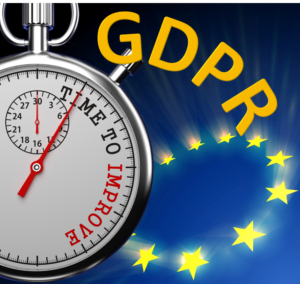Last month I posted a blog about the fact that while public corporations dislike many provisions of the Sarbanes-Oxley legislation, investors seem to like it [Investors Like SARBOX]. I was commenting on a BusinessWeek article by David Henry [“Not Everyone Hates SarbOx,” 29 January 2007]. Tom Barnett’s web master Sean Meade pointed me to an article that discusses the fact that University of Iowa researchers Sonja Rego and Haidan Li confirm Henry’s observations [“UI researchers show gains from Sarbanes-Oxley,” Iowa City Press-Citizen, 20 February 2007]. The article notes:
“While corporate executives say their businesses are groaning under the weight of complying with Sarbanes-Oxley regulations, two University of Iowa business professors have found that most investors cheered the law during its early days. Research by Sonja Rego and Haidan Li in the Tippie College of Business shows that stock market values increased significantly as a result of the reforms imposed by the Sarbanes-Oxley Act in July 2002. The two authors said that while the law may impose burdens on businesses, it has restored investor confidence in a market that was battered by a six-month long string of corporate scandals from Enron to WorldCom. Their research also found that market values increased even more significantly for those corporations that were thought to have been the most aggressive in managing — and occasionally manipulating — their earnings in order to artificially inflate their stock price.”
At Enterra we have argued for some time, based on research done by Gartner, that valuation increases when corporations are proactive in their approach to compliance. The article notes that corporations chafe under SOX requirements, but:
“Rego and Li’s research found that whatever controversy there might have been about the potential costs SOX would impose was outweighed by its expected benefits as investors were looking to have their faith restored in the market. In their research, Rego and Li followed the price of 850 stocks starting on June 25, 2002, the date of the announcement of a $3.8 billion accounting fraud at WorldCom, the largest corporate fraud in American history at that time. Stocks sunk to new lows on news of the fraud, as investors increasingly lost faith in companies’ earnings statements. The WorldCom scandal turned out to be the event that spurred Congress to reform corporate governance and accounting regulations. The government’s response began almost immediately, with the SEC filing suit against WorldCom executives on June 26 and requiring chief executive and chief financial officers at all publicly traded U.S. companies to certify their companies’ financial statements. Within a month, Congress had passed what would become the Sarbanes-Oxley Act, which was signed into law by President Bush on July 30. Stock prices began to rebound almost as soon as the SEC announced its actions on June 26, as stock returns increased by 3.6 percent by the end of the trading day June 27 from their lows of the day before. The market dropped again in the coming weeks amid more accounting fraud revelations and a general consumer gloom about the economy, but increased once more on July 24th, when a Congressional conference committee issued the Sarbanes-Oxley Act and sent it to the House and Senate for approval. On that news, the market jumped 5.4 percent. It jumped another 5 percent on July 29, when the SEC said it would publicly identify those CEOs and CFOs who did not certify their firms’ financial statements. Overall, the market jumped 11 percent by the end of the study period on Aug. 15 from its post-WorldCom low on June 26. Li and Rego said the increase is largely the result of investor confidence that SOX would make companies’ financial statements more accurate and reliable.”
Congress is going to have to walk a fine line as it considers how to relieve some of SOX’s more onerous provisions while preserving enough financial reporting to justify continued investor confidence. Whether it can accomplish this in the term leading up to the 2008 presidential elections remains to be seen. Businesses may see this as an opportunity to buy relief with political contributions, but this early in the race neither party has a clear frontrunner for president. Corporations may not see that as too problematic since they can beneficially concentrate on Congress — especially on senators up for re-election and on House members. If remedial legislation fails to pass Congress, it really doesn’t matter who wins the White House. The risk for Congress, of course, is that remedial legislation that retreats too much from stiff reporting requirements could result in voter backlash. Corporations are betting that voters won’t care and hope the next election remains a referendum on the war in Iraq.



